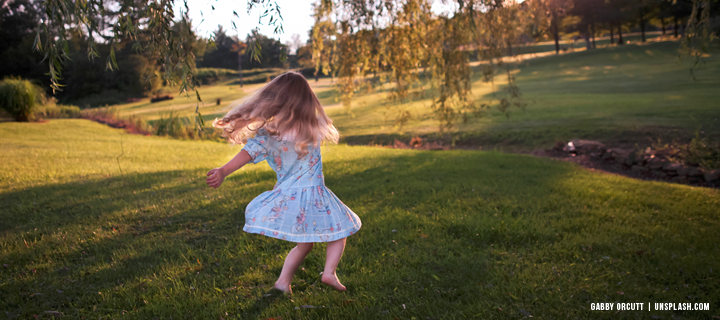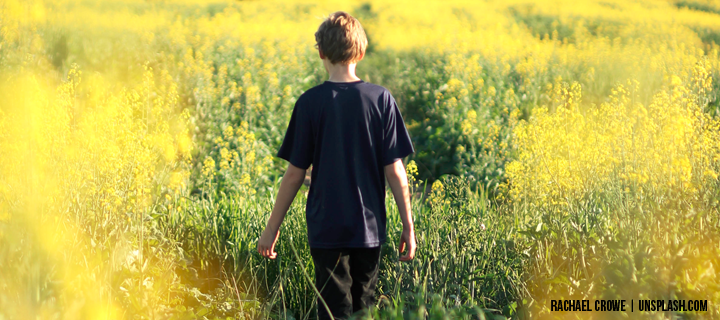Last spring I was on my way home from work when my wife called in a panic. “Honey,” she exclaimed, “there are bees in the chimney.”
“OK,” I replied dryly (it had been a long day), “I’ll drop by Lowes and grab some bee spray.”
A couple minutes lapsed and I got another call. This time more frantic. “Honey there are bees in the house!”
“How many?”
“A lot!”
“Five? Ten? Hundreds? How many is a lot?”
“Honey, there are bees in our house! Just (insert adult word) get here!”
A few minutes later I pulled into my garage. And the mental picture I snapped when I walked into our house will be forever etched in my mind. (Spoiler alert, you could count the number of bees “swarming” our house on two hands…maybe add in a couple toes.)
But there was my sweet wife of 15 years, standing in front of the fireplace shouting as she masterfully thrust, parried and deflected each bee with her hot pink fly swatter.
My 12 year old son, my wife’s wingman, was bopping up and down on our couch pointing and shouting, “Right there mom! No mom, over there! Above your head, mom! You missed it mom!”
My daughters (9 and 10 years old) were huddled together in the corner of our den screaming as loud as they could. (I’m pretty sure they were just screaming to see who could out scream the other.) And the commotion and noise was all too much for our Mini Yorkie, who darted from room to room barking and leaving a trail of treasures for us to find later.
After a few minutes of trying to calm everyone down, we taped up the fireplace, got rid of the few bees that were “swarming” the living room and made a few phone calls. Within 24 hours we were bee free!
My point is, it’s really easy to let the small things of the world make a big impact on our lives – especially during the holidays. The holidays are meant to be fun! But, too often we allow the small things (like a family dinner, the office party or rude shoppers) to bother us. And that can lead us down a path to seasonal depression or left with a sense of anxiety. Both can cause us to miss out on the joy of the holidays.
So here are a couple of BEE-attitudes (pun intended) to help us keep things in perspective.
BEE mindful of your time
During the holidays make “good, better and best” your measurement of time. You’re going to have all kinds of parties to attend, meals to make, deadlines to keep, shopping to do, travel to arrange, gifts to buy – your to-do list can be extensive and exhaustive. There are lots of good things to fill your time with during holidays. But we can’t do everything! We’re not supposed to do everything! So pick the best ones (the ones that amplify your fun and joy) and forget the good ones. By doing so, we’ll clear our calendar of those activities that add to our stress level, rather than add to our holiday joy. We’ll also be more likely to give greater attention and time to the things that matter most. And in return, get more joy out of them.
BEE prepared
Without fail, we all converge on the same places at the same times during the holidays. Parking lots, shopping malls and grocery stores, despite being decked in boughs of holly, can be a train wreck of humanity. But, why are we surprised by this? It happens EVERY year. We don’t have to like it. But we can prepare for it.
So when we go shopping, prepare mentally and emotionally, for the adventure we’re about to undertake. Leave the house prepared to sit in traffic, to wait in long lines, to battle crowds and deal with tired kids. When you head off to the office party, be prepared for the awkward questions about your recent divorce. When you sit down for Thanksgiving dinner, be prepared for the political argument with uncle Joe.
Prepare a plan. Prepare a response. Prepare an exit strategy, if you must. When you have a plan in place, it’s easier to manage expectations and keep it all in perspective.
To be perfectly clear, seasonal depression is not a small (or joking) matter. It affects people differently and because of different reasons. For some people there are circumstances that lead to depression or anxiety that are simply out of their control.
i360 Dallas can play a big part in helping you work through the depression, anxiety and stress that inevitably comes packaged with the holidays.
Please visit our Hope for the Holidays page for more tips to cope with seasonal depression and anxiety. We have some great videos that are a great resource too. Then give us a call or email us if you, or someone you know, is struggling with seasonal depression, stress or anxiety this holiday season.
We can walk the journey with you. We can help.
4 Things Great Relationship Builders Do
Networking versus relationship building—aren’t they pretty much the same thing? I’ll admit, I thought they were until recently. Listening to a podcast featuring Glen Jackson of Jackson Spalding in Atlanta changed my mind.
As Jackson says, “Networking is about meeting people; relationship building is about investing in people. Networking is a task; relationship building is a commitment. Networking is about talking and taking, and relationship building is about listening and learning.”
Wow! That’s a huge difference, and very eye opening. As I think about my most prized relationships, I have to ask myself if I’m really doing my best to build them well, or if I’m just networking my way through life. Turns out there are certain things great relationship builders do. Here are four that resonated with me:
- Listen and Learn – We’ve all been there. You’re in a conversation with someone and you can tell they aren’t present. They are nodding, “uh-huh”-ing, but it’s clear their mind is somewhere else. Too often, that absent person is me. But good relationship builders truly listen. They ask good questions. They hear the answer. They want to know more. They want to know about you. They care, and they are present.
- Invest – Building a relationship takes time, and great relationship builders are in it for the long haul. They want to go deep instead of wide. They invite you to lunch or coffee. They go to your games. They ask about the job interview, or the parent who had a health scare. And perhaps most importantly, they roll up their sleeves to help, giving their time and attention without looking for something in return.
- Personalize – While I love getting gift cards for Christmas, there is nothing quite like getting a gift from someone that communicates, “I really know you.” Great relationship builders do this, sending personalized notes, articles they know you’ll like, or texts of encouragement. They order a book for you that they know you’ll love. They bring you your favorite Starbucks drink. It feels good to be known, and great relationship builders do this well.
- Care – This is fourth on the list, but truly foundational to the other three. Good relationship builders care. They care enough to listen without having to get a word in. They care enough to learn about you and really get to know you. They care enough to invest their time and energy into you. Their attention is personalized because they’ve cared enough to learn about you and make observations. Great relationship builders genuinely care.
Those are four relationship-building traits that resonated with me. While relationship building doesn’t come naturally to many of us, we can all improve. I hope some of those resonated with you as well.
How i360 Helped Luke Turn His Life Around
Luke (name has been changed) was a lot like of other teenage boys: a huge sports fan who loved the Rangers, Netflix, and his X-Box. The youngest of three children and only son of prominent Dallas attorneys, Luke seemed to have everything going for him. He was smart, likable, and set up for success.
But late in high school, Luke’s life took a turn. He was bullied at school. Symptoms of ADHD surfaced. He began to withdraw from friends. Social situations prompted a crippling anxiety in Luke. Soon he turned to alcohol and prescription pain pills to mask the pain. Before long he was bunkered down in his parents’ home – no job, not in school, no direction in life. Isolation and substance abuse had taken its toll.
Understandably concerned for their son, Luke’s parents reached out to Innovation360. After assessing the situation, acustomi360 plan was developed. A member of our Life Development team brought him to the Cooper Aerobics Center for a withdrawal stabilization. But as is often the case for those in the throes of mood issues and addiction, Luke was resistant to treatment. He left the Cooper Aerobics Center and walked 11 miles back to his parents’ home where he bunkered down, in crisis but refusing to leave.
Fortunately, Luke’s parents were not alone in addressing their son’s crisis.Thanks to the powerful, positive influence of healthy relationships,i360’s Life Development team was there to support Luke and his family and able to convince him to return to the Cooper Aerobic Center. But as his substance abuse was removed from the picture, other problematic behaviors surfaced, including body image issues and binge eating.
Thanks to Luke’s relationship with the Life Development team, things started heading in the right direction. The team began to show him what authentic relationships look like – a stark contrast to the bullying he had experienced in high school. They began to work on body image issues and the importance of self-care. They worked on developing social skills, and skills to manage his anxiety, stress, anger, and shame. Team members worked out and ate with Luke to help him develop healthy, balanced lifestyle habits.And they spent free time with Luke, to help him understand how to have fun without the use of substances.
Luke fully engaged in treatment, attending an intensive outpatient program, DBT skills group, individual and family therapy and several 12-step support groups. The Life Development team helped connect the dots for Luke so he could process the things he was learning in individual and group therapy, and apply them directly to his life.
When Luke eventually moved from the Cooper Aerobics Center into a sober living facility, the Life Development team continued to work with him to implement what he was learning in therapy and to keep him plugged into healthy relationships.
In time, those healthy relationships began to take root. Soon Luke was ready to go back to school. He began at a community college, earning A’s his first semester.
Luke has been sober for two years now and has transferred to a four-year university where he has continued to make straight A’s. He plans to major in Political Science and has aspirations of becoming a lawyer, just like his mom and dad. Thanks to Luke’s commitment to his recovery and the support of his i360 Life Development Team, those dreams are on track to become reality.
Watch our video to learn more about our Life Development program: https://vimeo.com/112177384
Breaking News: Women Also Suffer From Alcoholism
I have a love-hate relationship with the 24-hour news cycle. I mean, we get the best and worst of humanity delivered “live and as it’s happening” all day, every day. Don’t get me wrong – I realize I’m part of the problem. As a consumer of knowledge, I have a genuine desire to know what’s going on in the world. I guess I just don’t want every dirty detail. Don’t tell me how the clock works, just tell me what time it is.
But I think a casualty of our “breaking news” obsession are the journalists who deliver it to us. There’s a lot of pressure on those folks. I think it’s particularly tough for broadcast journalists. For some reason, possibly out of oddly placed respect, we place them on a pedestal. Not only is their hair supposed to stay in place while reporting on the beach during a hurricane, we expect them to maintain a certain level of ethical and moral standards off camera. So when they’re on camera, they’re more trustworthy.
And when their private lives don’t jive with our expectations – they suffer the wrath of public scrutiny. Such is the case with national TV journalist Elizabeth Vargas. On camera she’s perfect. Poised. Eloquent. Respected. Off camera she’s a recovering alcoholic.
In a recent interview with Diane Sawyer, Ms. Vargas talked candidly about her long struggle with alcoholism and anxiety. You can catch that interview here.
But I love her honesty when she said, “When you’re in the cycle of this disease though, it doesn’t matter how much you have or how little you have, I—it didn’t matter,” she continued. “It leveled me. It knocked me flat on my butt. I lost sight of everything.”
According to the article, “nearly 63 percent of women in trouble with alcohol say they are also fighting anxiety.” I think we can look at Ms. Vargas at this point in her recovery and understand that alcoholism usually has trigger – in her case it was anxiety. It’s rarely, if ever, an independent disease. And alcoholism is no respecter of fame, fortune or social status. Just ask Ms. Vargas. The key is to identify the trigger.
If you are struggling with alcoholism, especially if you are a woman, we understand that you face very different struggles, pressures and expectations. We can help you. Watch our video, “Women & Addiction” to learn more, then give us a call at (214) 733-9565 to start the discussion.
5 Virtues My Children Have Taught Me
Raising young children has been the most difficult job I’ve had. I know that’s not exactly a newsflash for a lot of people. But I was an only child who was consistently told by my family that I would one day make a great father. Somewhere along the line their reassurances translated into a simple equation in my mind:
Raising Children = Moderately Hard/Mostly Fun.
Oh, the bliss of ignorance . . . until the moment of truth arrives.
Don’t get me wrong, I love being a father of two young kids, but I was quite naïve about the lessons parenting would bring. I’ll call these lessons “virtues” in an exercise of cognitive reframing, rather than what they often feel like: grueling events that, if not respected and studied carefully, could suck one’s very will to live.
Who knew I’d learn so many virtues from my kids?
Here are my top five:
- Enthusiasm. This one’s easy at first, especially when you are eyewitness to the birth of the most beautiful baby in the history of mankind. That’s an adrenalin rush I’ll never forget.But when the sleep deprivation kicks in, parental enthusiasm begins to peter out. You begin to ask yourself hard questions, like “What was I thinking?” and “Why won’t this thing stop crying?!” But then she falls asleep on your shoulder and you are in awe of a sleeping angel. All of a sudden all the sleepless nights become worth it, and your resolve as a parent moves forward, stronger.
- Patience. I thought I was a patient person . . . and then I tried teaching my three-year-old how to tie his shoes. Make one bunny ear . . . make a second bunny ear . . . no not that way . . . oh, hell. Let’s buy the kid some Velcro! But these small, teachable moments (for me, not my kid) have helped me understand what is important and what isn’t. It’s a lesson I’m still learning.
- Assertiveness. Ever tried feeding a 6-month-old a jar of strained peas? Yeah, that’s not happening, no matter how many times the choo-choo approaches the tunnel. But there’s something refreshing about the black-and-white nature of a kid’s likes and dislikes, and their innate belief that their opinions matter. I’m trying more often to make my preferences known so I’m not Mr. Wishy-Washy. I believe God gave each of us unique gifts and talents, and a unique point of view that needs to be heard.
- Imaginative. Storytime with my kids is my favorite. To see the look on their faces as they let their imagination enter the story I’m reading is inspiring. I’m starting to better understand that we can each write our own inspiring story through the life we live and the memories we make.
- Acceptance. My kids didn’t get to choose their dad, but the way they light up when I get home at night makes me feel as if they did. Unconditional love is a powerful thing, though I don’t doubt the power of a well-timed ice cream cone as well. My kids seem to accept me for who I am, and I’m trying the same response with the people in my circles as well. We’re each a work in progress.
Well, there’s my Top Five.
What other things your kids are teaching you? Please let me know in the comments below.
by Chris Epstein, Clinical Director of Innovation360 Dallas
5 Things to Never Say to your Struggling Child
It’s typical for parents to equip themselves with knowledge on how to raise healthy children. However, we are rarely knowledgeable or prepared to deal with a struggling child.
In an effort to motivate our children toward healthy behaviors and attitudes, we unfortunately and unintentionally say things that produce more shame and resistance. Over the many years of working with families, clients have shared their perceptions and feelings about certain statements that parents frequently make.
Below are 5 statements parents often make with love and good intention, and what their child who is struggling often hears instead:
- “But you have so much potential!”
What they often hear: “So why are you such a screw-up?” - “If you loved us, you would stop drinking/taking drugs!”
What they often hear or perceive: “You are doing this to us intentionally. We have absolutely no understanding of your pain or situation. You do not love us.” - “It is best not to tell anyone you have been in rehab. What happens in our family should stay in our family.”
What they may hear: “We are so ashamed of you. We don’t want anyone to associate you with our family. It is not okay to reach out beyond our family for support.” - “You have been provided with more than most kids could ever hoped for.”
What they often hear: “Because you have money and privilege, you have no right to have problems. You are a failure and a disappointment.” - “You brother and sister never did anything like this.”
What they often hear: “We love them more than you because they don’t have problems. You do not belong in our family. Our family is wonderful except for you.”
Intention and impact are two very different things. We all say things in fear and pain that may not be the best choice of words to share. There is such healing and relationship mending when parents apologize to their children for statements that may have hurt them. Empathize with them, do not justify your statements and admit you are struggling too without blaming them. There is comfort in knowing parents are human, fallible, imperfect and willing to walk beside them in their struggle.






